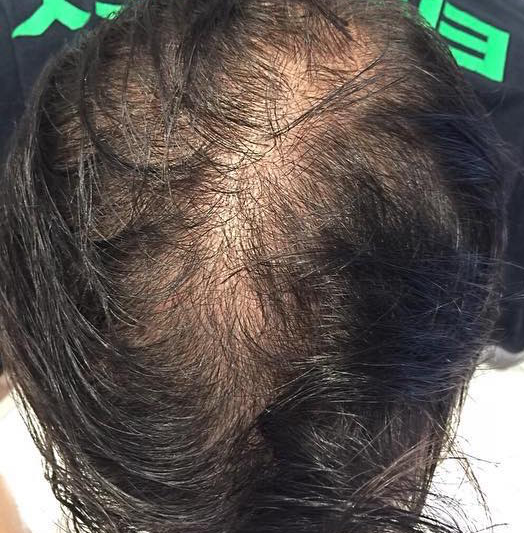Home / Common Concerns / Telogen Effluvium
Telogen Effluvium
Periods of physical or psychological stress can cause your hair to enter into a state of ‘telogen effluvium’. This is a condition that occurs when the normal cycle of hair growth is interrupted, and the scalp follicles enter into a resting stage together. There is abrupt and diffuse hair loss.
Telogen Effluvium appears as scattered thinning on the head that is more serious in some areas than others.
what causes Telogen Effluvium?
Causes of telogen effluvium can include childbirth, fevers, severe infections, major surgery or illness, prescribed medications, hormones, chemotherapy, psychological stress, and dieting that results in a loss of protein or iron. Excessive intake of supplements such as Vitamin A can also trigger telogen effluvium.
The condition is temporary and the hair recovers as the resting follicles reactivate. It mainly takes up to eight months for such hair loss to slowly decrease and considering that head hair grows at approximately the rate of half an inch per month, restoring the appearance of the scalp to normality may take even longer.
The signs of telogen effluvium are visible and may be frightening, as hair loss is particularly noticeable especially during shampooing. Shampoo does not cause or exacerbate the condition.
Telogen effluvium affects pigmented hair more than any grey or white hair already present, and as a result more pigmented hair falls out. Chronic telogen effluvium may easily be confused with female pattern hair loss and a correct diagnosis is essential as there are possible treatment options.
Physical or psychological stress can cause your hair to enter into a state of ‘telogen effluvium’. This is a condition that occurs when the normal cycle of hair growth is interrupted, and the scalp follicles enter into a resting stage together. There is abrupt and diffuse hair loss.
Telogen Effluvium may be activated by numerous events such as surgery foods, low iron levels, extreme weight loss, critical mental stress, critical physical trauma, pregnancy, certain medications or other related factors.
Unfortunately, this causes many strands of hair to move from the anagen phase to the telogen (shedding) phase, resulting in excessive daily hair fall.
Telogen effluvium can either be moderate or severe depending on the health history of the client and the leading cause of the internal disturbance. The actual initiation of the hair loss can begin 6-12 weeks after the event that triggered the condition so you may not connect the two events right away. If you begin to notice excessive hair shedding, think back a couple of months to recall potential causes.
A person with telogen effluvium can possibly lose up to 300 hairs within a 24 hour period. Be sure to pay close attention to to signs like more hair shedding when you brush or style your hair. You should also check the drain of your shower for a build-up of excess hair loss.
What can you do about Telogen Effluvium?
Treatment for telogen effluvium depends on what is triggering the hair loss. Once the trigger has been established and addressed, the hair cycle should normalize and hair will begin to grow back.
Treatment options include:
addressing nutritional deficiencies through dieting
hormone replacement therapy
counseling support to manage stress or anxiety.
Learn more about:
Why Nina Ross Hair Therapy?
STATE OF THE ART + PERSONALIZED TREATMENTS
Founder of NRHT - Dr. Nina Lassiter, BCDHH
Transformations
View Real Patient Before & Afters
Reviews
see testimonials from current clients
Get answers from a specialist
Request a phone call and get your questions answered
Call 678.561.4522












